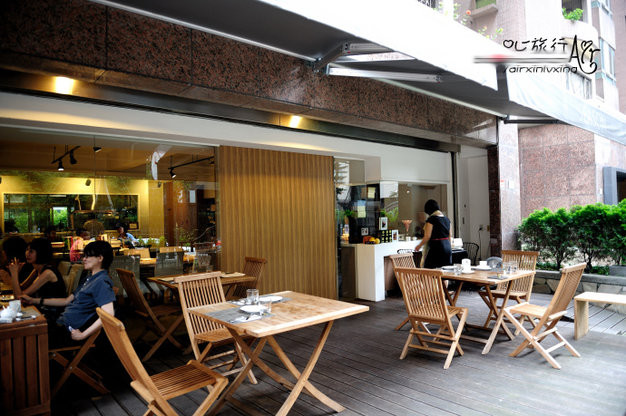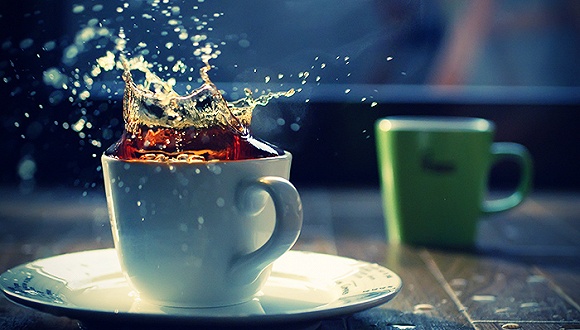Traditional cafes encounter the concept of "Waterloo" and "creator", and the mash-up style leads the new trend.

Liu Huijiao, a reporter from ■ Henan Economic Daily
With soft music and a faint aroma of coffee, many urban white-collar workers will choose warm and tranquil cafes to regulate their busy life. However, in recent years, the rapid expansion of cafes is gradually not as expected, homogenized competition, single sales model and other problems make many cafes from the previous popularity to now deserted. Today, when the market is not yet fully saturated, how can traditional cafes "change" so that they can remain "never fade" in the hearts of consumers?
Homogenization expansion intensifies the struggle for territory among foreign "monks"
In recent years, the coffee consumption market has shown great business opportunities and vitality. Zhengzhou is no exception, not only traditional cafes such as Diou Coffee and Shangdao Coffee, which have been stationed in Zhengzhou for many years, but also foreign cafes have joined the fierce competition, such as Starbucks in the United States. it has opened 14 stores in Zhengzhou since it entered the country in 2011.
Under the crowding of these foreign brands, the reporter saw that the traditional commercial cafes, which were once very popular, had a great impact. "Foreign brands occupy a large market. Compared with the past, many stores are dying under the siege of foreign 'monks'. " Li Lin, associate professor of business management at Zhongzhou University, said, "there are several problems why traditional cafes are facing such a situation. First of all, foreign cafes are mostly concentrated in densely populated commercial neighborhoods, while local cafes are mostly hidden in inconspicuous small streets. Secondly, foreign cafes are more like petty bourgeoisie and are the gathering place of fashion trends. Starbucks, for example, is no longer a simple cafe, but a symbol of popular culture and petty bourgeoisie life. In addition, under the influence of the herd mentality, consumers value brands, while local cafes can hardly compare with foreign brands in terms of influence and representativeness. "
In fact, both traditional cafes and new foreign brands are facing homogenized competition. "when there are countless similar storefronts and similar products blooming in the market, the customers who originally belong to you will be diverted." The person in charge of Shangdao Cafe, which is located on Hongzhao Road in Zhengzhou, said.
The sharp rise in costs and the polarization of rescuing the market at low prices are difficult to stop the decline in profits.
The fierce competition has made many traditional cafes feel "crisis". In this case, many cafes take competitive means of lowering prices to strive for survival. The reporter saw that low-price discounts offered by large and small cafes can be seen everywhere on the group-buying website, with the original price of 38 yuan only 15 yuan, the original price 32 yuan 0.4 discount only 1 yuan, and the original price 50 yuan package only 9.9 yuan.
"many operators believe that price is a 'panacea' for seizing the market." "although lowering prices can attract customers, it has seriously depressed the operating profits of the cafe," said Fang Hua, an industry insider who used to run a cafe. In fact, many cafes are facing the problem of skyrocketing costs, especially those in busy areas, which have a headache caused by doubling rents every year. In addition, the rise in raw material costs and labor costs has also made many coffee people's dreams' broken'. "
"at present, the price war has become a normal means of competition in the coffee market. If you want to maintain a 'aloof' posture in this form, you have to make a gorgeous' turn 'and look for a new business model." Fang Hua said.
Lin Kui, Secretary-General of the Retailing Special Committee of Henan Economic Strategy Association, has the same view on the development of the coffee shop industry. He told reporters: "in the fierce market competition, only by changing the single model and looking for a diversified mode of operation can we find a way out."
The upstart plays the mash-up style across the border.
The reporter found that at a time of meagre profits and fierce competition, some cafes have begun to explore new business models and find new directions for development.
On August 25, the reporter came to a creative cafe on the third floor of Wangfujing, Lichun Road, Luoyang. The reporter saw that the transparent wall divided the cafe into two parts, selling clothing on the left and displaying computers, a variety of books and exquisite handicrafts in a large area on the right. Go inside. The part near the window is the sitting area provided by the cafe. Here, consumers can take a book, order a cup of coffee, listen to beautiful music, and enjoy life quietly.
"We sell both clothes and books, and provide places for customers to drink coffee." The store owner told reporters, "although this business model is an attempt, but from the current sales situation, the effect is good, the profit is much better than opening a coffee shop, but also attracted a lot of regular customers."
The reporter saw that at present, the mixed style of "coffee shop +" has begun to appear on the market, such as "coffee shop + supermarket", "coffee shop + clothing", "coffee shop + book", "coffee shop + tourism" and so on. in the future, the cross-border operation of cafes will develop in a more diversified direction. "through cross-border mash-up cooperation, we can not only make cafes have a broader operating space, increase store revenue, but also better integrate with brands and enhance market competitiveness." Li Lin said.
Start-up Coffee finds another way to create the founder's "Dream Factory"
This is no longer a place for coffee and entertainment, but a gathering place for entrepreneurs. Entrepreneurial cafes can not only let people with entrepreneurial dreams know more investors, but also provide them with a low-cost venue for starting a business.
Huigu Coffee, which is located on Jingsan Road in Zhengzhou City, is a well-known entrepreneurial cafe in our province. There are not only standard cafes-bar, booth, but also open meeting space, conference room and so on. The reporter saw that although coffee is made here, it gathers popularity and sells projects and talents.
Many people wonder whether such entrepreneurial cafes can make a profit by selling coffee alone. In this regard, the person in charge of Huigu Coffee said: "it is very difficult to make money by selling coffee alone. We use cafes to provide investment opportunities for entrepreneurs and transport talents for enterprises." Relying on this platform, we hold a variety of activities to bring entrepreneurs, technicians and entrepreneurs together to collect relevant service fees. In addition, we also provide office space for entrepreneurs to reduce their entrepreneurial costs and help them realize their entrepreneurial dreams. "
The reporter saw that compared with the traditional coffee shop, the business philosophy of the entrepreneurial coffee shop is more advanced and the profit space is broader. "Entrepreneurial cafes have broad market prospects. They no longer focus on a single mode of operation, but move towards diversification." "with the development and maturity of this form, it will really become an 'incubator' for entrepreneurs in the future," said Wei Fengjun, a researcher at the Institute of higher Education at Henan University of Science and Technology. "
Source: central Plains Economic Network-Henan Economic Daily
Important Notice :
前街咖啡 FrontStreet Coffee has moved to new addredd:
FrontStreet Coffee Address: 315,Donghua East Road,GuangZhou
Tel:020 38364473
- Prev

Why does coffee always spill disposable coffee cups even with a lid?
When you realize that you are going to be late for work, you may rush to buy a cup of coffee and rush to the office as fast as you can. It's just that by the time you get to the office, the coffee in the disposable cup in your hand has spilled the small hole in the lid, and maybe there will be some yellowish-brown spots on your shirt. After that, you'll have to wear this spot lining.
- Next

The Story of an American and Pu'er Coffee
For most Pu'er people, Mini Coffee is a slightly unfamiliar name. It is headed by tim, a handsome guy from the United States. The main coffee brand of Mini Coffee is translated into Chinese as Hamini. This is a kind of boutique coffee beans, and its production process completely follows the standard technology of fine coffee. Most of the coffee here is exported abroad, but many people who have drunk Hamini coffee
Related
- What grade does Jamaica Blue Mountain No. 1 coffee belong to and how to drink it better? What is the highest grade of Blue Mountain coffee for coffee aristocrats?
- What are the flavor characteristics of the world-famous coffee Blue Mountain No. 1 Golden Mantelin? What are the characteristics of deep-roasted bitter coffee?
- Can I make coffee a second time in an Italian hand-brewed mocha pot? Why can't coffee be brewed several times like tea leaves?
- Hand-brewed coffee flows with a knife and a tornado. How to brew it? What is the proportion of grinding water and water temperature divided into?
- What is the difference between Indonesian Sumatra Mantinin coffee and gold Mantinin? How to distinguish between real and fake golden Mantelin coffee?
- What does bypass mean in coffee? Why can hand-brewed coffee and water make it better?
- Unexpected! Ruixing Telunsu lattes use a smoothie machine to foam milk?!
- % Arabia's first store in Henan opens into the village?! Netizen: Thought it was P's
- Does an authentic standard mocha coffee recipe use chocolate sauce or powder? Mocha Latte/Dirty Coffee/Salty Mocha Coffee Recipe Share!
- What is the difference between Vietnam egg coffee and Norway egg coffee? Hand-brewed single product coffee filter paper filter cloth filter flat solution!

